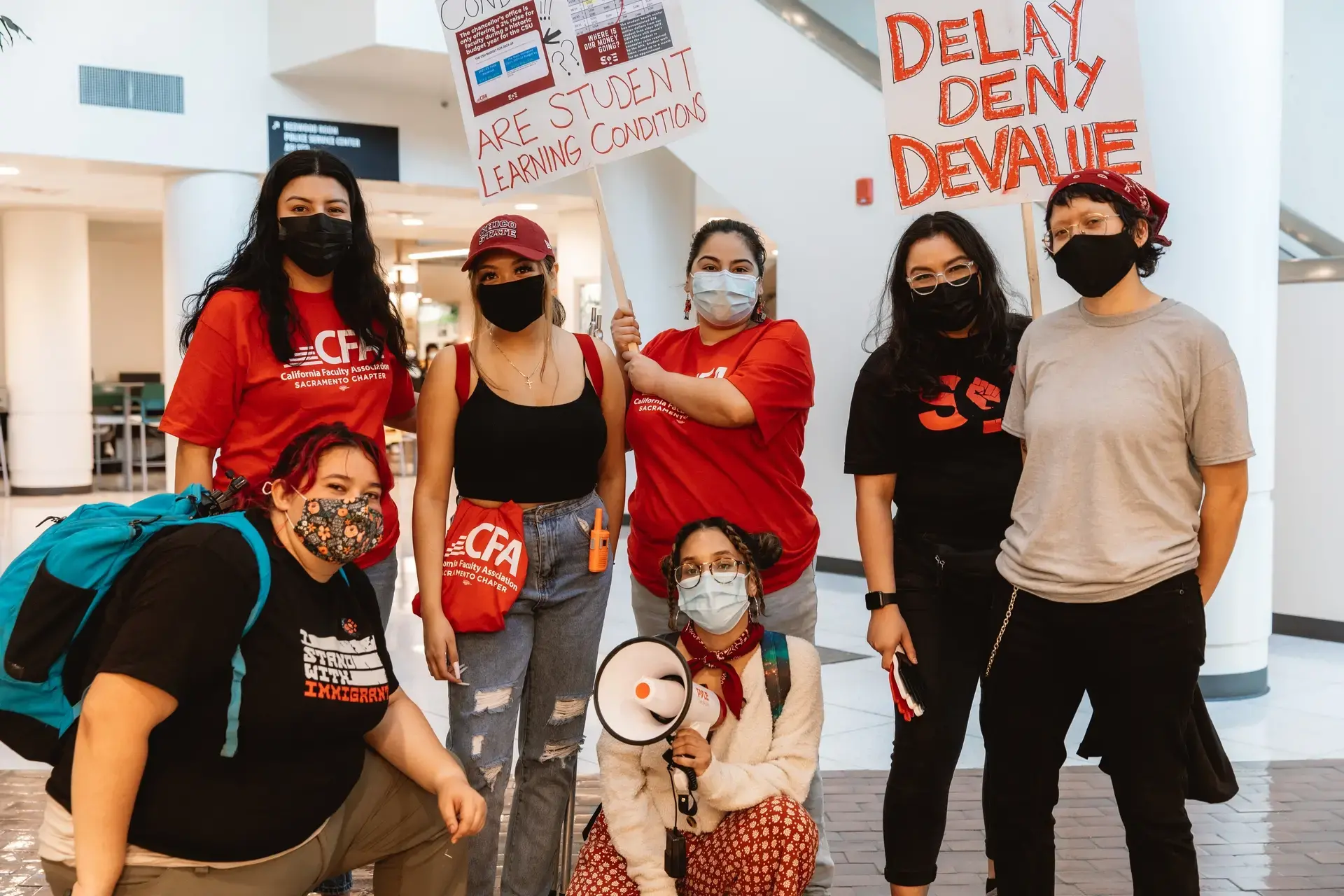Tell Governor Newsom to Sign AB 1997 to Study Alternatives to CSU Campus Policing
Students, faculty, and staff want to study options to emergency response programs on CSU campuses. Governor Newsom can make that happen by signing Assembly Bill 1997.
San Francisco State graduate Ja’Corey Bowens experienced racial profiling when they were a resident advisor in the campus dorms.

“There are many feelings that come to mind, but the feeling that I remember distinctly is fear. Fear that any wrong word or move could give motive to this officer to detain me or worse: kill me. All for simply performing my duties and serving the students of this university,” Bowens said. “This story is mine, but I’m not the only one who bears it alone. Out of the 19,301 Black students and the 544 Black faculty within the CSU, there are many who share my story.”
While serving as vice president in student government, on the California State Student Association Board of Directors, and as a Students for Quality Education intern at San Francisco State, Bowens said they heard story after story from faculty and students about police abuse. This is why Bowens continues to push for necessary campus police reform.
“No issue has been on the minds of students more than the issue of campus policing,” Bowens said.
CFA-sponsored AB 1997 would require the CSU to convene a stakeholder workgroup to develop alternative options to current emergency response programs on campuses and alternative dispute resolution options to resolve employee conflicts.
Join your colleagues by sending a letter to Governor Newsom urging him to sign AB 1997.
“Students, faculty and staff on the campuses of the CSU system, particularly persons of color, have reported that they do not feel safe. There are increasing reports of BIPOC students, faculty, and staff being treated unfairly and harassed by armed campus police,” said Sharon Elise, CFA Vice President of Racial & Social Justice, South, and CSU San Marcos professor.
CFA members and Students for Quality Education interns have been advocating for options to the typical response to incidents that occur on our campuses. These include:
- Reinvestment in mental health counselors and mental health crisis intervention teams;
- Providing mandatory de-escalation and unconscious bias training for all campus police and security;
- Implementing trauma-informed crisis response teams at each campus of the CSU;
- Requiring crisis response teams on each campus to respond to non-criminal health and safety incidents, including, but not limited to, classroom disruptions, and interpersonal conflicts among campus community members;
- Ensuring that crisis response teams are separate and distinct from both campus police departments and local law enforcement;
- Redirecting from police departments services traditionally performed by skill-based campus professionals.
Students for Quality Education and CFA members have been advocating for these alternatives since 2018. CFA’s 2021 Rights, Respect, Justice bargaining campaign yielded an agreement for an alternatives to policing workgroup. Incidents including the excessive physical removal of Cal State Los Angeles professor Dr. Melina Abdullah by university police from a public forum on campus, the racial profiling of CSU Long Beach associate professor Dr. Steven Osuna, the weaponizing of police by a colleague at Sacramento State professor Dr. David Moore, and countless other cases that go unrecognized prove beyond a doubt the need for investments in resources outside of armed police.
“Our students, faculty, and staff should feel safe as they learn, study, and work on our campuses. AB 1997 will ensure that there are alternative responses to emergencies on campuses,” said Chris Cox, CFA Vice President of Racial & Social Justice, North, and San José State lecturer.
Join your colleagues by sending a letter to Governor Newsom urging him to sign AB 1997.
Join California Faculty Association
Join thousands of instructional faculty, librarians, counselors, and coaches to protect academic freedom, faculty rights, safe workplaces, higher education, student learning, and fight for racial and social justice.